第320章
I will reflect on what you have said, but I cannot at present give up my belief in the close relationship of Man to the higher Simiae. I do not put much trust in any single character, even that of dentition; but I put the greatest faith in resemblances in many parts of the whole organisation, for I cannot believe that such resemblances can be due to any cause except close blood relationship. That man is closely allied to the higher Simiae is shown by the classification of Linnaeus, who was so good a judge of affinity. The man who in England knows most about the structure of the Simiae, namely, Mr. Mivart, and who is bitterly opposed to my doctrines about the derivation of the mental powers, yet has publicly admitted that Ihave not put man too close to the higher Simiae, as far as bodily structure is concerned. I do not think the absence of reversions of structure in man is of much weight; C. Vogt, indeed, argues that [the existence of] Micro-cephalous idiots is a case of reversion. No one who believes in Evolution will doubt that the Phocae are descended from some terrestrial Carnivore.
Yet no one would expect to meet with any such reversion in them. The lesser divergence of character in the races of man in comparison with the species of Simiadae may perhaps be accounted for by man having spread over the world at a much later period than did the Simiadae. I am fully prepared to admit the high antiquity of man; but then we have evidence, in the Dryopithecus, of the high antiquity of the Anthropomorphous Simiae.
I am glad to hear that you are at work on your fossil plants, which of late years have afforded so rich a field for discovery. With my best thanks for your great kindness, and with much respect, I remain, Dear Sir, yours very faithfully, CHARLES DARWIN.
[In April, 1872, he was elected to the Royal Society of Holland, and wrote to Professor Donders:--"Very many thanks for your letter. The honour of being elected a foreign member of your Royal Society has pleased me much. The sympathy of his fellow workers has always appeared to me by far the highest reward to which any scientific man can look. My gratification has been not a little increased by first hearing of the honour from you."]
CHARLES DARWIN TO CHAUNCEY WRIGHT.
Down, June 3, 1872.
My dear Sir, Many thanks for your article (The proof-sheets of an article which appeared in the July number of the 'North American Review.' It was a rejoinder to Mr. Mivart's reply ('North American Review,' April 1872) to Mr. Chauncey Wright's pamphlet. Chauncey Wright says of it ('Letters,' page 238):--"It is not properly a rejoinder but a new article, repeating and expounding some of the points of my pamphlet, and answering some of Mr. Mivart's replies incidentally.") in the 'North American Review,' which I have read with great interest. Nothing can be clearer than the way in which you discuss the permanence or fixity of species. It never occurred to me to suppose that any one looked at the case as it seems Mr. Mivart does. Had Iread his answer to you, perhaps I should have perceived this; but I have resolved to waste no more time in reading reviews of my works or on Evolution, excepting when I hear that they are good and contain new matter...It is pretty clear that Mr. Mivart has come to the end of his tether on this subject.
As your mind is so clear, and as you consider so carefully the meaning of words, I wish you would take some incidental occasion to consider when a thing may properly be said to be effected by the will of man. I have been led to the wish by reading an article by your Professor Whitney versus Schleicher. He argues, because each step of change in language is made by the will of man, the whole language so changes; but I do not think that this is so, as man has no intention or wish to change the language. It is a parallel case with what I have called "unconscious selection," which depends on men consciously preserving the best individuals, and thus unconsciously altering the breed.
My dear Sir, yours sincerely, CHARLES DARWIN.
[Not long afterwards (September) Mr. Chauncey Wright paid a visit to Down (Mr. and Mrs. C.L. Brace, who had given much of their lives to philanthropic work in New York, also paid a visit at Down in this summer.
Some of their work is recorded in Mr. Brace's 'The Dangerous Classes of New York,' and of this book my father wrote to the author:--"Since you were here my wife has read aloud to me more than half of your work, and it has interested us both in the highest degree, and we shall read every word of the remainder. The facts seem to me very well told, and the inferences very striking. But after all this is but a weak part of the impression left on our minds by what we have read; for we are both filled with earnest admiration at the heroic labours of yourself and others."), which he described in a letter ('Letters, page 246-248.) to Miss S.
Sedgwick (now Mrs. William Darwin): "If you can imagine me enthusiastic--absolutely and unqualifiedly so, without a BUT or criticism, then think of my last evening's and this morning's talks with Mr. Darwin...I was never so worked up in my life, and did not sleep many hours under the hospitable roof...It would be quite impossible to give by way of report any idea of these talks before and at and after dinner, at breakfast, and at leave-taking; and yet I dislike the egotism of 'testifying' like other religious enthusiasts, without any verification, or hint of similar experience."]
CHARLES DARWIN TO HERBERT SPENCER.
Bassett, Southampton, June 10, [1872].